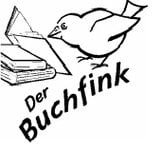Front Flap:
Poet, essayist, actor, hymn-writer, wit, magazine editor, transvestite stage performer: Christopher Smart, Georgian don-turned-writer, was all of these. He was, and remains, a mercurial individual, an idiosyncratic yet strangely familiar writer of spiritual heights and material depths. His paradoxical exuberance fascinates scholars of eighteenth-century culture, and this collection of essays, a snapshot of current scholarship from both new and established Smart scholars, offers, among others, literary, theological, dramatic and philosophical perspectives on his writing. Here are new ways of reading familiar Smart works - including the astonishing, devout poem of his incarceration, Jubilate Agno - and unfamiliar ones, such as his translations and writing for children. Unexpected readers of Smart, from Coleridge to a testy anonymous annotator, are examined, and Smart's sacred translations and profane stage presence each find a place. Tom Keymer's re-evaluating afterword finds the quality of "betweenness" in Smart's work: between eras, between genres, between forms, Smart's vitality demands reassessment for each new generation of readers. Contributors: Karina Williamson, Min Wild, Rosalind Powell, Fraser Easton, Clement Hawes, William E. Levine, Noel Chevalier, Lori A. Branch, Daniel J. Ennis, Chris Mounsey, Debbie Welham, Tom Keymer.
Back Flap:
The editors Min Wild's monograph Christopher Smartand Satire on Smart's Midwife, was published in 2008, and various articles and reviews of a Smartian bent have followed. Her interest in that eighteenth-century favorite, the literary mode of prosopopoeia, has led her to investigate the personification of words, texts and literary modes themselves. Shelectures in eighteenth-century literature and theory at Plymouth University, UK, and reviews in the Times Literary Supplement and elsewhere.Noel Chevalier is Associate Professor of English at Luther College, University of Regina, Canada. He has published articles on Jubilate Agno and on Smart's challenge to "legitimate" playhouses in Mrs. Midnight'sOratory. Although his specialty lies in the eighteenth century, his teaching and research cover a diverse range of topics, from literary responses to the Bible, to the roots of globalization, to literary representations of science and scientists. He has helped create two interdisciplinary programs at Luther: one which addresses literature for students in the sciences, and one which explores the philosophical, political, economic, and cultural contexts of globalization.Jacket illustration: "Amaryllis sarniensis or Guernsey Amaryllis," from William Curtis, The Botanical Magazine; or, Flower-GardenDisplayed, Vol. IX. No. 294. London, 1795.
Contents
Illustrations
Acknowledgments
Abbreviations
Introduction
Noel Chevalier and Min Wild
Part One: Smart on the Page: Readings, Re-readings, and Mis-readings
One: Marginalia in Smart's Horace: The Reader as Critic
Karina Williamson
Two: Christopher Smart, Samuel Taylor Coleridge, Smart and the Tradition of Learned Wit
Min Wild
Three: Making an Impression: Christopher Smart's Idea of Writing Well
Rosalind Powell
Four: Christopher Smart's Elocution
Fraser Easton
Part Two: Smart in the Madhouse: Revisiting "The Fool for the Sake of Christ"
Five: Poised Poesis: Ecstasy in Jubilate Agno
Clement Hawes
Six: Keeping, Deflating, and Transcending "The Fool's Conceit"; Smart's Hybridization of Satiric and Devotional Modes in His Translations of the Psalms
William E. Levine
Part Three: Smart in (Sunday) School: Reading the Works for Children
Seven: Breaking the Circle of the Sciences: Newton, Newbery, and Christopher Smart's New Learning
Noel Chevalier
Eight: The Smallness of Hope, or Reason and the Child: The Case for a Postsecular Christopher Smart
Lori A. Branch
Part Four: Smart on Stage: Re-viewing Mrs. Midnight's Oratory
Nine: Christopher Smart, Mary Midnight and the Haymarket, 1755
Daniel J. Ennis
Ten: Of Calling Cards and Miss Leroche: Christopher Smart and Leicester House
Chris Mounsey
ElevenThe Lady and the Old Woman: Mrs. Midnight the Orator and her Political Provenance
Debbie Welham
Afterword
Tom Keymer
Bibliography
Index
About the Contributors
Dieses eBook wird im epub-Format geliefert und ist mit einem Adobe Kopierschutz (DRM) versehen. Sie können dieses eBook mit allen Geräten lesen, die das epub-Format und den Adobe Kopierschutz (DRM) unterstützen.
Zum Beispiel mit den folgenden Geräten:
• tolino Reader
Laden Sie das eBook direkt über den Reader-Shop auf dem tolino herunter oder übertragen Sie das eBook auf Ihren tolino mit einer kostenlosen Software wie beispielsweise Adobe Digital Editions.
• Sony Reader & andere eBook Reader
Laden Sie das eBook direkt über den Reader-Shop herunter oder übertragen Sie das eBook mit der kostenlosen Software Sony READER FOR PC/Mac oder Adobe Digital Editions auf ein Standard-Lesegeräte mit epub- und Adobe DRM-Unterstützung.
• Tablets & Smartphones
Möchten Sie dieses eBook auf Ihrem Smartphone oder Tablet lesen, finden Sie hier unsere kostenlose Lese-App für iPhone/iPad und Android Smartphone/Tablets.
• PC & Mac
Lesen Sie das eBook direkt nach dem Herunterladen mit einer kostenlosen Lesesoftware, beispielsweise Adobe Digital Editions, Sony READER FOR PC/Mac oder direkt über Ihre eBook-Bibliothek in Ihrem Konto unter „Meine eBooks“ -„online lesen“.
Schalten Sie das eBook mit Ihrer persönlichen Adobe ID auf bis zu sechs Geräten gleichzeitig frei.
Bitte beachten Sie, dass die Kindle-Geräte das Format nicht unterstützen und dieses eBook somit nicht auf Kindle-Geräten lesbar ist.
 Und dann auf "Zum Home-Bildschirm [+]".
Und dann auf "Zum Home-Bildschirm [+]".






































